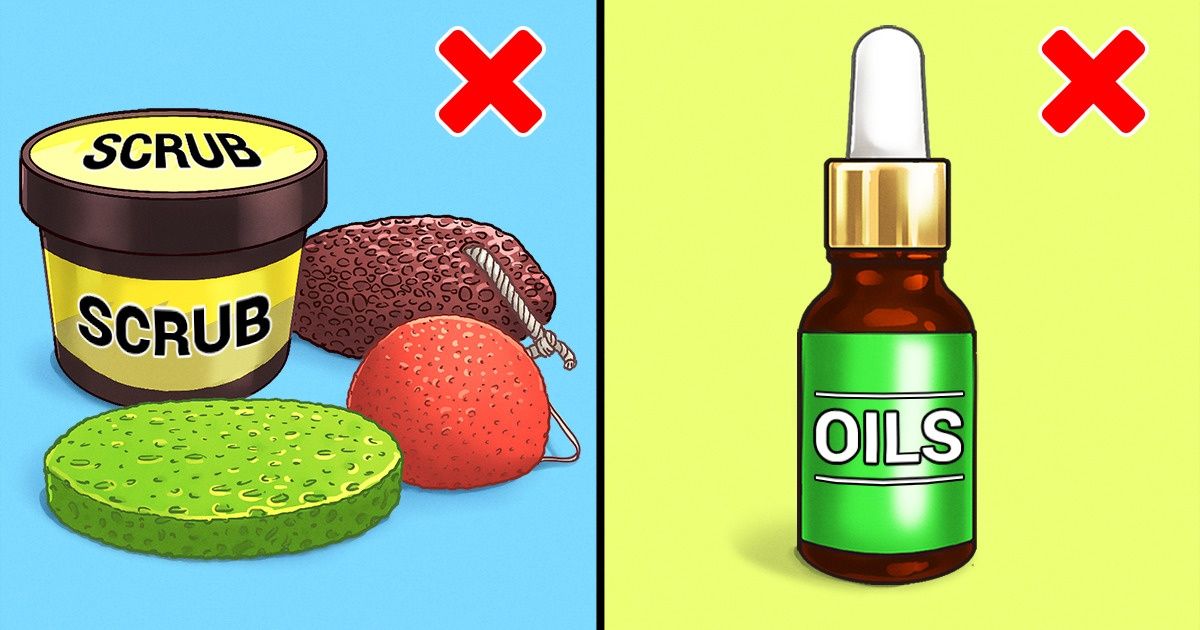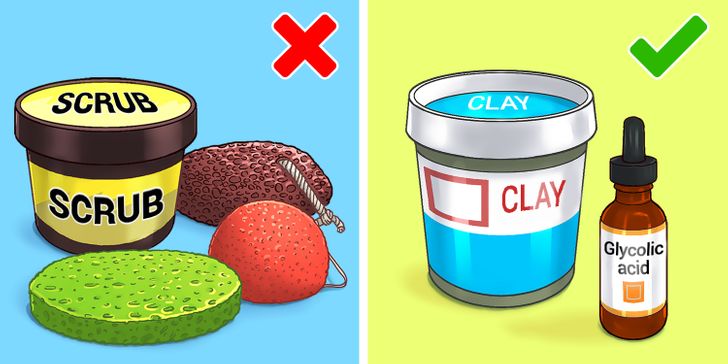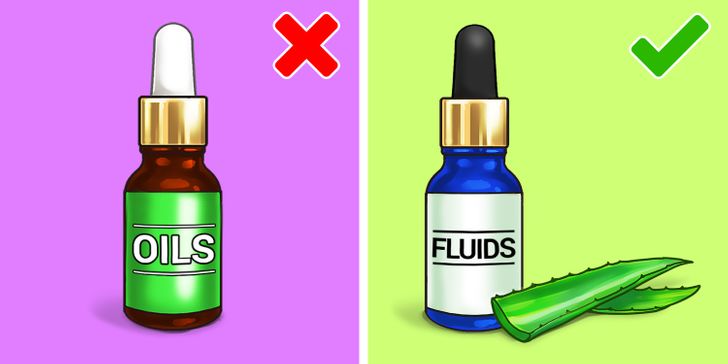How to Care for Oily and Combination Facial Skin

Your skin type depends on several factors: how moisturized it is, how much sebum it produces, and how sensitive it is to the environment. There 4 skin types: normal, dry, oily, and combination. The last 2 types have similar features.
5-Minute Crafts decided to figure out how to care for oily and combination skin correctly every day.
Oily skin type

Combination skin type

-
Your skin can be dry or normal in some areas and oily in others, such as the T-zone (nose, forehead, and chin).
-
Pores that look larger than normal
-
Oily shine, especially on the forehead
-
Blackheads
Washing
-
Wash your face in the morning, in the evening, and after physical activity. This way, you’ll cleanse your skin from any accumulated sebum.
-
Choose mild foams and gels that don’t contain aggressive substances or alcohol. They irritate the skin and make it dry, causing the production of even more oil.
-
That’s why you should only wash your face with warm water.
-
After washing, don’t rub your skin with a towel, just pat it gently.
-
If you’re prone to acne, consult a dermatologist and choose cleansers that contain benzoyl peroxide and salicylic acid.
Exfoliation

-
Don’t use scrubs, rough sponges, or loofas on your face. They irritate the skin and stimulate oil production. If you have blemishes, they will spread all over your face and the healing process will slow down.
-
Exfoliate your skin 1-2 times a week with the help of facial masks with a clay base or mild acids such as glycolic or lactic.
Moisturizing

-
Oily and combination skin needs to be moisturized. If there isn’t enough moisture in the skin, it will produce more oil to make up for the lack of moisture.
-
Choose light moisturizers and fluids. Avoid cosmetic products that contain oils.
-
Aloe vera can be a great moisturizer for oily skin. It replenishes the moisture levels in the skin, makes the pores smaller, and heals breakouts.
Special products
-
If you plan to go outside and spend more than 15 minutes there, apply sunscreen after your regular skincare products. Contrary to popular belief, the sun doesn’t heal acne or make oily skin dryer, it only makes the situation worse.
-
If it’s hot outside and the skin produces more oil, use blotting papers. They remove excess sebum, cleansing the skin and pores.
-
Look for the word “noncomedogenic” on skincare products and cosmetics. This means it won’t clog pores or cause new breakouts.
When you should turn to a specialist
The reasons for an overproduction of sebum can be due to genetics, an unhealthy diet, bad skin care, or hormonal or digestive system disorders. Only a doctor can diagnose it and prescribe the proper treatment.
It’s also worth contacting a dermatologist if you have acne or other inflammations. The doctor will assess the condition of your skin and prescribe products that will be effective for you.
It’s never a bad idea to consult a specialist if you just have oily or combination skin. A dermatologist will determine your skin type and select the optimal skincare products.